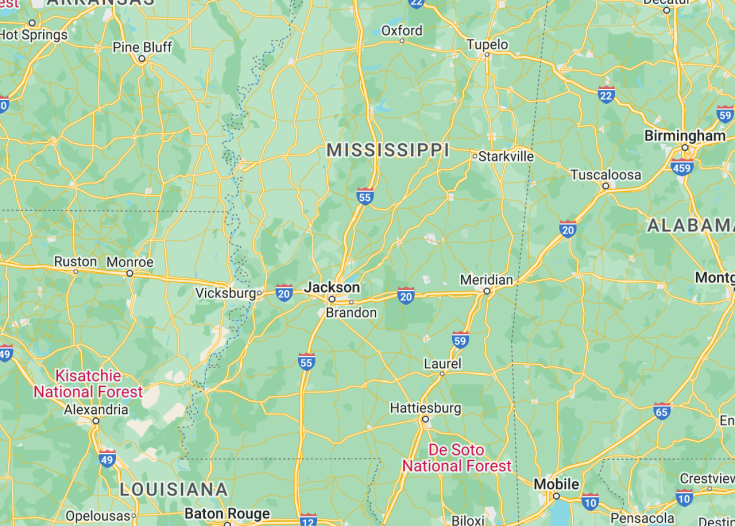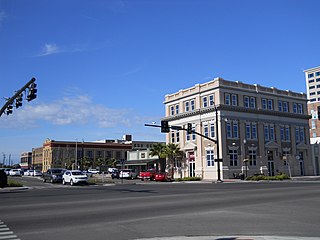Mississippi, fondly referred to as the “Magnolia State”, paints a vivid tapestry of deep-rooted American history, rich musical heritage, and picturesque landscapes. It’s a destination where the rhythms of the blues, the allure of antebellum architecture, and the tales of the mighty Mississippi River converge, offering travelers an immersive experience. With its mouthwatering Southern cuisine and festivals celebrating its diverse cultures, Mississippi promises both an enlightening and enjoyable journey through the heart of the American South.
For authentic experiences, visit during a blues festival or a local county fair to soak in the regional culture.
Consider exploring the Mississippi Blues Trail, tracing the origins and evolution of this iconic genre.
Mississippi: the birthplace of America’s music
| Capital | Jackson |
| Time in Mississippi | GMT-6 (Central Time Zone) |
| Language spoken | English |
| Population | Approximately 2.97 million (Source: U.S. Census Bureau, 2022) |
| Religion | Protestant (83%) Roman Catholic (4%) Other Christian (1%) Other Religions (2%) Unaffiliated (10%) |
| Currency | U.S. Dollar ($, USD) |
| Airports | Jackson-Evers International Airport Gulfport-Biloxi International Airport Golden Triangle Regional Airport |
The state of Mississippi, fondly referred to as the ‘Magnolia State’ due to its abundance of magnolia flowers, is a treasure trove of deep-rooted history, rich culture, and scenic beauty. Nestled in the southeastern region of the United States, Mississippi offers its visitors a unique blend of experiences, from its delta blues music and Civil Rights Movement landmarks to the scenic vistas of the Mississippi River.
Historically, Mississippi holds a profound significance, with its soil bearing witness to pivotal moments in American history, especially the Civil Rights Movement. Landmarks like the Mississippi Civil Rights Museum in Jackson serve as powerful testimonies to the state’s journey towards justice and equality. Simultaneously, Mississippi’s antebellum homes and architecture stand as remnants of a bygone era, showcasing the elegance and grandeur of the Old South.
Culturally, the state is a haven for music enthusiasts. Recognized as the birthplace of the blues, Mississippi has been instrumental in shaping American music. Legendary artists like B.B. King and Muddy Waters hailed from here, and their legacies continue to resonate through the state’s vibrant music scene. The Mississippi Blues Trail, a series of markers dotted throughout the state, celebrates this rich heritage and guides tourists through significant blues-related landmarks.
Nature enthusiasts aren’t left wanting either. With its verdant landscapes, vast wetlands, and the majestic Mississippi River, the state provides a plethora of recreational opportunities from fishing to hiking. A trip to Mississippi is, thus, a harmonious blend of history, culture, and natural beauty.
Where is Mississippi located?
Mississippi is located in the southeastern region of the United States, bordered by Tennessee to the north, Alabama to the east, the Gulf of Mexico to the south, and Louisiana and Arkansas to the west.
What is Mississippi famous for?
Mississippi is renowned as the birthplace of the blues, boasting a rich musical heritage. Additionally, the state is significant for its Civil Rights Movement landmarks, antebellum architecture, and its namesake, the Mississippi River, one of the world’s major river systems.
History
Pre-1500: Ancient Inhabitants
Long before European exploration, the region that would become Mississippi was home to various indigenous peoples. The Mississippians, the most notable among them, constructed complex societies with impressive mound structures, such as those at Winterville. Their cultures thrived based on agriculture, particularly the cultivation of maize.
1540–1699: European Exploration
The first Europeans to explore Mississippi were under the expedition of Spanish explorer Hernando de Soto in 1540. They traversed the region, interacting with various indigenous groups, but did not establish permanent settlements. It wasn’t until the late 17th century that the French, led by Pierre Le Moyne d’Iberville, made the first significant European settlement, founding Old Biloxi in 1699.
1700–1783: Colonial Era
Throughout the 18th century, Mississippi was primarily a French territory, becoming a key part of New France. The region was crucial for its fur trade and as a buffer against English and Spanish expansion. In 1763, after the French and Indian War, the area east of the Mississippi River, including present-day Mississippi, was ceded to Great Britain. However, the Spanish took control of the region following their victory in the American Revolution, with Natchez becoming a significant Spanish outpost.
1783–1860: American Territory to Statehood and Antebellum Era
Following the American Revolution, Mississippi became a contested region, with the United States and Spain vying for control. In 1798, the U.S. established the Mississippi Territory. Mississippi was admitted as the 20th state in the Union on December 10, 1817. Throughout the antebellum era, the state’s economy boomed due to the growth of cotton cultivation, making it a central part of the Deep South. This economic growth was built on the backs of enslaved African Americans, and Mississippi had a deeply entrenched slave society by the mid-19th century.
1860–1865: Civil War
Mississippi was one of the first states to secede from the Union in January 1861, following the election of Abraham Lincoln. The state was a key battleground during the Civil War, with significant events like the Siege of Vicksburg in 1863, which gave the Union control over the entire Mississippi River.
1865–1960: Reconstruction to Civil Rights Movement
Post-Civil War Mississippi underwent Reconstruction, facing tension between northern “Carpetbaggers”, local “Scalawags”, and former Confederates. The latter group eventually regained control, and by the end of the 19th century, had established Jim Crow laws that disenfranchised Black Mississippians and institutionalized racial segregation. Mississippi became a focal point during the Civil Rights Movement in the mid-20th century. Tragic events, such as the murder of Emmett Till in 1955 and the assassination of Medgar Evers in 1963, brought national attention to the state’s entrenched racial issues.
1960–Present: Modern Era
Since the 1960s, Mississippi has witnessed significant changes. The Civil Rights Movement led to the dismantling of Jim Crow laws and the reestablishment of civil rights for Black Mississippians. The state’s economy has gradually diversified, moving away from a primary focus on agriculture to include manufacturing, services, and tourism. Despite the progress, Mississippi still grapples with issues related to poverty, education, and infrastructure, but remains a state rich in culture, history, and natural beauty.
Visit Mississippi
What to see and do in Mississippi
There are numerous attractions and activities to enjoy in Mississippi. Here are some highlights:
- Explore the historic city of Natchez, known for its beautifully preserved antebellum mansions.
- Visit the Mississippi Delta region, famous for its rich musical heritage and the birthplace of blues music.
- Experience the vibrant culture of Jackson, the state capital, which offers museums, live music venues, and delicious Southern cuisine.
- Discover the natural beauty of the Gulf Coast, where pristine beaches, fishing opportunities, and water sports await.
- Take a riverboat cruise along the mighty Mississippi River and enjoy scenic views of the surrounding landscape.
Events in Mississippi
Mississippi hosts a variety of events throughout the year, offering visitors a chance to immerse themselves in the state’s rich culture and traditions. Some notable events include:
- The Natchez Spring Pilgrimage, a celebration of Natchez’s historic homes and gardens, held annually in spring.
- The Mississippi Delta Blues & Heritage Festival, featuring performances by renowned blues musicians, held in Greenville in the fall.
- The Mississippi State Fair, a family-friendly event featuring carnival rides, live entertainment, and agricultural exhibits, held in Jackson in the fall.
- The Vicksburg Riverfest, a waterfront festival with live music, food vendors, and fireworks, held in Vicksburg in the summer.
Best time to visit Mississippi
The best time to visit Mississippi is during the spring (March to May) and fall (September to November) seasons. These months offer pleasant temperatures, with blooming flowers in spring and vibrant foliage in the fall. Additionally, many festivals and events take place during these seasons, allowing visitors to fully experience the cultural richness of the state. However, it is important to note that summers in Mississippi can be hot and humid, while winters can be relatively mild but with occasional cold spells.
Is Mississippi worth visiting?
Mississippi is definitely worth visiting for those interested in exploring the rich history, vibrant culture, and natural beauty of the region. The state offers a unique blend of Southern charm, iconic music heritage, and warm hospitality. Visitors can delve into the antebellum history of Natchez, immerse themselves in the soulful sounds of the Mississippi Delta, and savor the delicious cuisine that the state is renowned for. However, it is essential to be aware of the state’s complex history, including its role in the Civil Rights Movement, as this adds another layer of significance to a visit to Mississippi. Overall, Mississippi offers a compelling destination for those seeking an authentic and meaningful travel experience.












